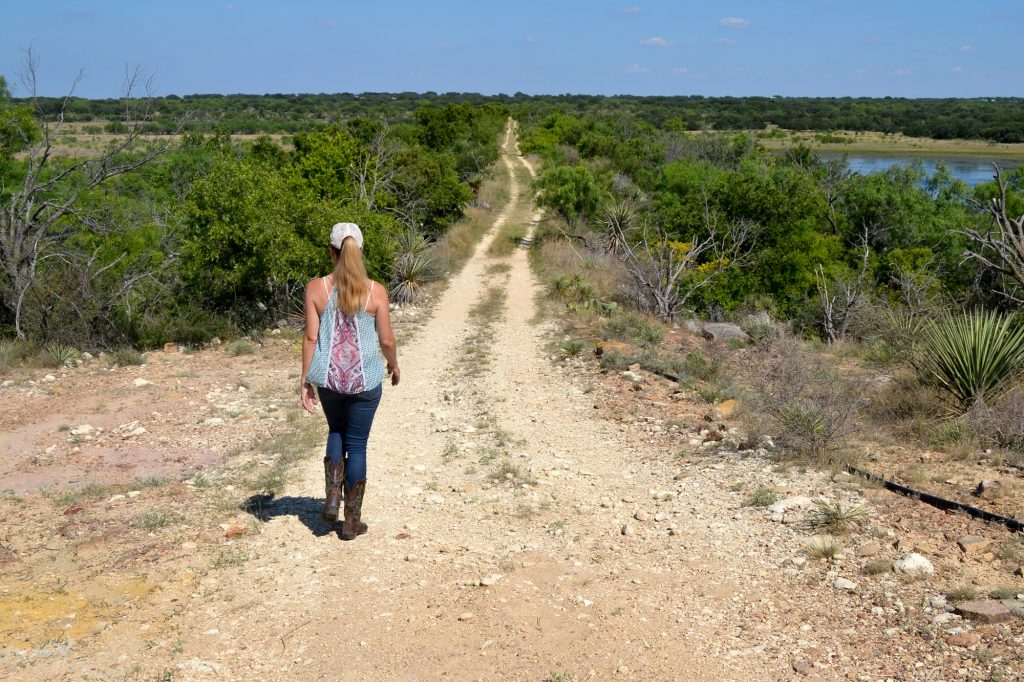‘Heart of Texas’ struggles to overcome radium contamination in water

Brady is known as the “heart of Texas” because it sits at the geographic center of the state. This tiny, rural town is home to 5,400 residents. (Photo by Elizabeth Sims/News21)
BRADY, Texas – Tony Groves cannot get clean drinking water for his city.
Brady, a historic city proudly known as the “heart of Texas,” has the second-most contamination violations in the country from the radium that has seeped into its drinking water for decades, according to the Environmental Protection Agency. And this tiny, rural community is running out of options to fix the problem.
The radium is naturally occurring in the Hickory Aquifer, the city’s only drinking water source. Groves, Brady’s mayor, knows concerns of cancer, kidney damage and birth defects from the radium drive many residents to buy case after case of bottled water.
“There’s a lot of bottled water sold in Brady to different people, both for convenience of drinking the water and for concern,” Groves said. “I drink the (tap) water. It’s just a matter of personal integrity, I guess, that says ‘I can’t get you any better water than this, so I’m gonna drink the same water you’re drinking.’”
In fact, water bottles are just a way of life for many of Brady’s 5,400 residents. Children take water bottles to school every day so they do not have to drink from the fountains.
“The kids are aware,” said Angie Borrego, a first grade teacher at Brady Elementary School and lifelong Brady resident. “There will be times when the kids will leave (their water bottle) at home, and they’ll be like, ‘Oh gosh, I don’t have my water, and I’m not going to go to the water fountain,’ because they are drilled that this water is not safe.”

The “Clean Water For Texas” sign is displayed outside of Brady’s water treatment plant. Brady has the second-highest number of contaminant violations for the naturally occurring radium in its drinking water. (Photo by Elizabeth Sims/News21)
The city made progress in correcting the problem by building a system to mix its groundwater with water from the nearby Brady Lake. However, the success was short lived as a multiyear drought nearly dried up the lake, forcing the city to shut down its $20 million investment in 2015.
The radium levels spiked once again, violations poured in and notices went out with the water bills month after month. The notices became so common, some residents said they just throw them out.
“We’ve gotten a lot of notices from the city saying that the amounts of radium or the amounts of whatever – honestly, I haven’t even read them. I just know it’s bad, “ said Melissa Regeon, a Brady resident and a teacher’s aide at Brady High School.
Since the drought, the city has been planning a $22 million water system overhaul to finally bring clean water to residents. However, the state considers Brady an “economically distressed area” because its median household income is far below average. The city’s economy relies heavily on hunting at local ranches and fracking sands sales from mines surrounding the area.
“That makes us eligible for grants, so funds are very significant in paying for that project,” Groves said. “Otherwise, we would be severely financially impacted by doing this process.”
Brady set its sights on Texas’s Economically Distressed Areas Program, a $250 million fund distributing $50 million every two years to help cities such as Brady afford major infrastructure projects.
City officials hoped the grant would cover, at best, 85 percent of the water system project. However, three things stand in the way of the funds: Brady is not the only applicant city. This $50 million is the program’s final allocation. And state senate committees have rejected a bill to renew the program’s budget.

Amy Greer, a local farmer at Winters Family Beef, walks on her ranch’s property line. Greer’s family is working with city officials to prepare easements for a new water system. (Photo by Elizabeth Sims/News21)
“If we don’t get it this time, and the state doesn’t reauthorize that program, I don’t know what we’ll do,” said Amy Greer, a sixth-generation farmer at the locally operated Winters Family Beef.
Her family is collaborating with the city on easement agreements. Part of the plan includes upgrading the aging distribution pipes throughout the community if the funds for the project come through.
“I really want our state legislators to know how terrible it is that they are not renewing a program that will help small rural communities face and tackle these kind of massive health and safety problems,” Greer said. “I’m just ashamed of them.”
Texas legislators deferred the final allocation to the state’s 2019 budget, further complicating matters for the city – already under a strict timeline from the EPA to fix its radium problem. Greer worries the EPA will take over the system entirely or the city will end up with no water, but Groves stands by the city’s ability to take care of residents.
“Nobody understands their problems better than we do, so nobody can figure out a solution better than we can,” Groves said.
Groves said the city will find another way to get funding if the grant falls through, and he is confident residents will support their efforts to provide clean water, even if water rates have to go up.
“If it needs it, we’re all for it. Let’s go. Giddy up,” said Joe Evridge, a Brady resident and co-owner of D and J’s Good Ole Days Antiques and Oddities. “How are they going to pay for all that? They’ve got to go get some revenue somewhere. So there’ll be an adjustment, I’m sure. But that’s just life. Deal with it. What can you do?”